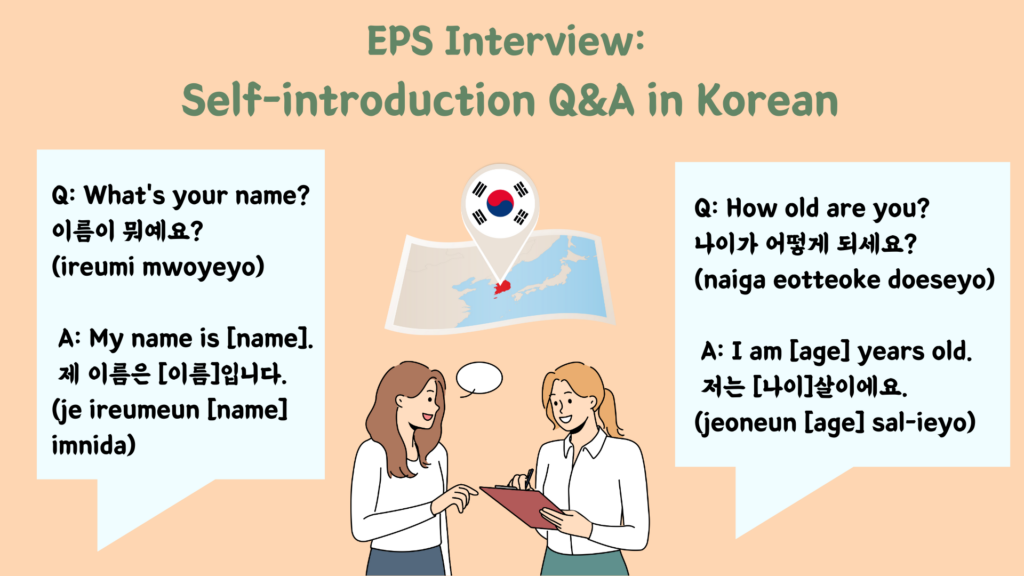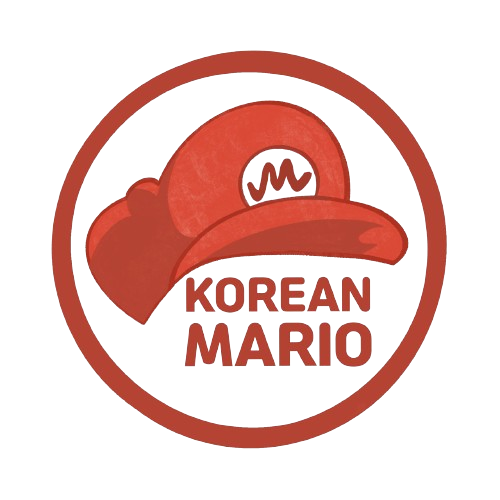
Hello! Welcome to this comprehensive guide on how to introduce yourself in Korean. Whether you’re planning a trip to Korea, studying the language, or simply interested in Korean culture, knowing how to properly introduce yourself is an essential skill. A well-crafted self-introduction can help you make a great first impression, foster meaningful connections, and navigate social interactions with ease.
In Korean culture, introductions are more than just stating your name. They often include information about your background, interests, and current pursuits, providing a context that helps build rapport. This guide will provide you with the essential phrases needed for a basic self-introduction, as well as common questions and answers that you might encounter in everyday conversations.
We’ll start by learning some fundamental phrases that will help you confidently introduce yourself in various settings. Then, we’ll explore a series of typical questions and responses that will enhance your ability to engage in deeper conversations. By the end of this guide, you’ll have a solid foundation for making a positive impression and connecting with others in Korean.
Here are some useful self-introduction phrases in Korean:
| 🔊 | Q: What’s your name? 이름이 뭐예요? (ireumi mwoyeyo) A: My name is [name]. 제 이름은 [이름]입니다. (je ireumeun [name] imnida) |
| 🔊 | Q: Where are you from? 어디에서 왔어요? (eodieseo wasseoyo) A: I am from [country]. 저는 [나라]에서 왔어요. (jeoneun [country] eseo wasseoyo) |
Learn how to express nationality in Korean by clicking here.
| 🔊 | Q: How old are you? 나이가 어떻게 되세요? (naiga eotteoke doeseyo) A: I am [age] years old. 저는 [나이]살이에요. (jeoneun [age] sal-ieyo) |
Learn how to express age in Korean by clicking here. Koreans use native Korean numbers to express age!
| 🔊 | Q: What’s your job? 직업이 뭐예요? (jigeobi mwoyeyo) A: I am a [profession]. 저는 [직업]이에요. (jeoneun [profession] ieyo) |
Learn how to express profession in Korean by clicking here.
| 🔊 | Q: What’s your hobby? 취미가 뭐예요? (chwimiga mwoyeyo) A: My hobby is [hobby]. 제 취미는 [취미]예요. (je chwimineun [hobby] yeyo) |
Learn how to express hobby in Korean by clicking here.
| 🔊 | Q: What language do you speak? 무슨 언어를 말하세요? (museun eoneoreul malhaseyo) A: I speak [language]. 저는 [언어]어를 말해요. (jeoneun [language] eo reul malhaeyo) |
Learn how to express country names in Korean by clicking here.
| 🔊 | Q: Where do you live? 어디에 살아요? (eodie sarayo) A: I live in [city/country] 저는 [도시/나라]에 살아요. (jeoneun [city/country] e sarayo) |
Learn how to express country names in Korean by clicking here.
| 🔊 | Q: How many people do you have in your family? 가족이 몇 명이에요? (gajogi myeot myeong-ieyo) A: My family has [number] members. 제 가족은 [숫자]명이에요. (je gajogeun [number] myeong-ieyo.) |
Learn how to express number of pax in Korean by clicking here. Koreans use native Korean numbers to express number of people!
| 🔊 | Q: When is your birthday? 생일이 언제예요? (saeng-iri eonjeyeyo) A: My birthday is [month] [day]. 제 생일은 [월]월 [일]일이에요. (je saeng-ireun [month] wol [day] ilieyo) |
Learn how to express dates in Korean by clicking here. Koreans use Sino-Korean numbers to tell the date!
| 🔊 | Q: What’s your number? 전화번호가 뭐예요? (jeonhwabeonhoga mwoyeyo) A: My phone number is [number]. 제 전화번호는 [번호]예요. (je jeonhwabeonhoneun [number] yeyo) |
Learn how to express phone numbers in Korean by clicking here. Koreans use Sino-Korean numbers to tell their numbers!
| 🔊 | Q: What’s your major? 무슨 전공을 해요? (museun jeongongeul haeyo) A: I major in [subject]. 저는 [전공]을/를 전공해요. (jeoneun [major] eul/reul jeongonghaeyo.) |
| 🔊 | Q: How long have you been in Korea? 한국에 얼마나 있었어요? (hanguke eolmana isseosseoyo) A: I have been in Korea for [duration]. 저는 [기간]동안 한국에 있었어요. (jeoneun [duration] dongan hanguke isseosseoyo) |
Learn how to express duration in Korean by clicking here. Koreans use Sino-Korean numbers to tell number of years!
| 🔊 | Q: What’s your favorite season? 좋아하는 계절이 뭐예요? (johahaneun gyejeori mwoyeyo?) A: I like [spring/summer/autumn/winter]. 저는 [봄/여름/가을/겨울]을 좋아해요. (jeoneun [bom/yeoreum/gaeul/gyeoul-ul]eul johahaeyo) |
| 🔊 | Q: What color do you like? 좋아하는 색깔이 뭐예요? (johahaneun saekkkari mwoyeyo) A: I like [color]. 저는 [색깔]을 좋아해요. (Jeoneun [color] eul johahaeyo) |
Learn how to express colors in Korean by clicking here.
| 🔊 | Q: Are you married? 결혼하셨어요? (gyeolhonhasyeosseoyo) A: Yes, I am married. 네, 결혼했어요. (ne, gyeolhonhaesseoyo) A: No, I am not married. 아니요, 결혼 안 했어요. (aniyo, gyeolhon an haesseoyo) |
| 🔊 | Q: Are you seeing someone? 애인이 있어요? (aein-i isseoyo) A: Yes, I have a boyfriend/girlfriend. 네, 애인이 있어요. (ne, aeini isseoyo) A: No, I don’t have a boyfriend/girlfriend. 아니요, 애인이 없어요. (aniyo, aeini eopseoyo) |
| 🔊 | Q: What kind of job do you want to do? 어떤 일을 하고 싶어요? (eotteon ireul hago sipeoyo) A: I want to do [job/work]. 저는 [직업/일]을 하고 싶어요. (jeoneun [job/work] eul hago sipeoyo) |
Learn how to express occupation in Korean by clicking here.
| 🔊 | Q: How long have you been learning Korean? 한국어를 얼마나 배웠어요? (hangugeoreul eolmana baewosseoyo) A: I have been learning Korean for [duration]. 저는 [기간]동안 한국어를 배웠어요. (jeoneun [duration] dongan hangugeoreul baewosseoyo) |
Learn how to express duration in Korean by clicking here. Koreans use Sino-Korean numbers to tell number of years!
| 🔊 | Q: Why are you learning Korean? 한국어를 왜 배우세요? (hangugeoreul wae baeuseyo?) A: I am learning Korean because [reason]. 저는 [이유] 때문에 한국어를 배워요. (jeoneun [reason] ttaemune hangugeoreul baewoyo) |
Thank you for taking the time to learn how to introduce yourself in Korean. Mastering these phrases and understanding common questions and answers will significantly enhance your ability to communicate and connect with Korean speakers. Whether you’re meeting new friends, colleagues, or acquaintances, a confident and well-structured self-introduction can pave the way for meaningful interactions and relationships.
Remember, practice makes perfect. Try using these phrases and questions in real-life situations or with language partners to build your confidence. The more you practice, the more natural your introductions will become. Additionally, don’t be afraid to personalize your introduction by adding details about your interests, hobbies, or unique aspects of your background. This personal touch will make your introductions more engaging and memorable.
As you continue your journey in learning Korean, keep exploring and expanding your vocabulary and conversational skills. Language learning is an ongoing process, and each step you take brings you closer to fluency and deeper cultural understanding. Good luck, and enjoy your experiences with the Korean language and culture!

